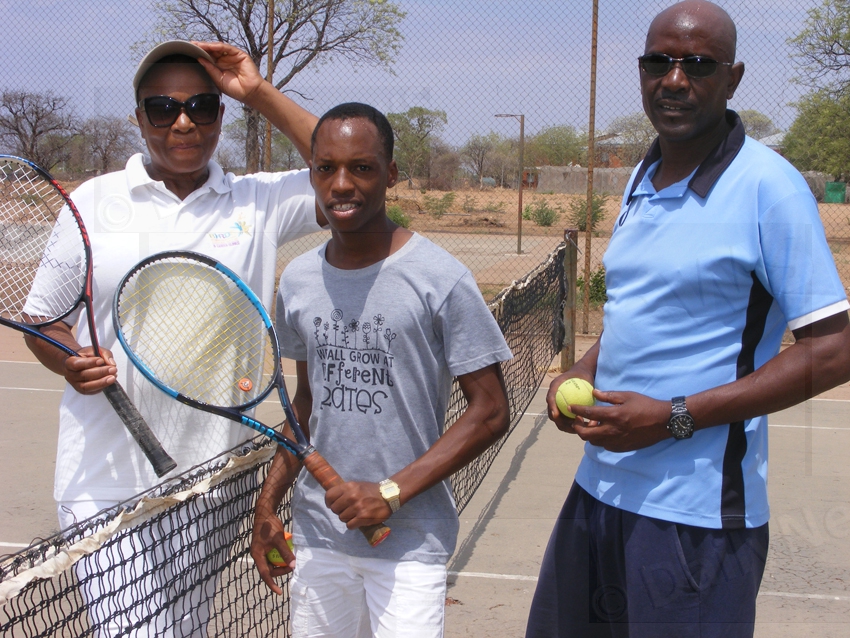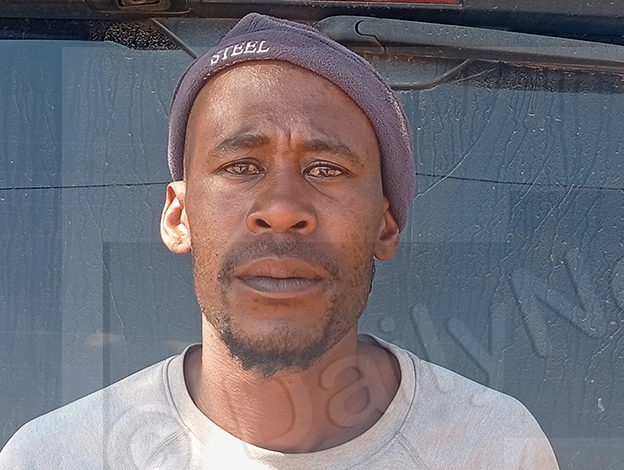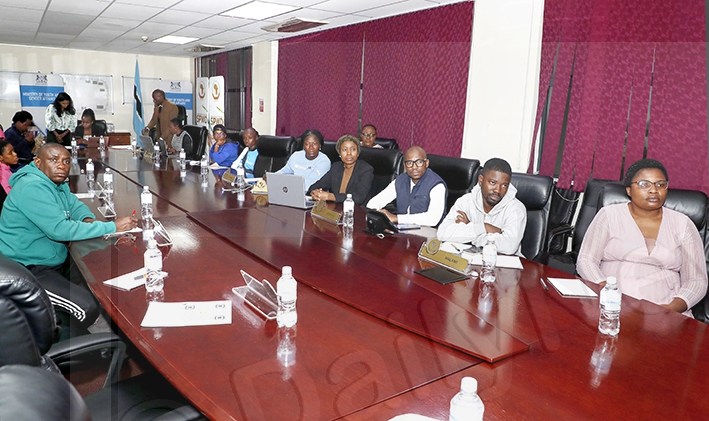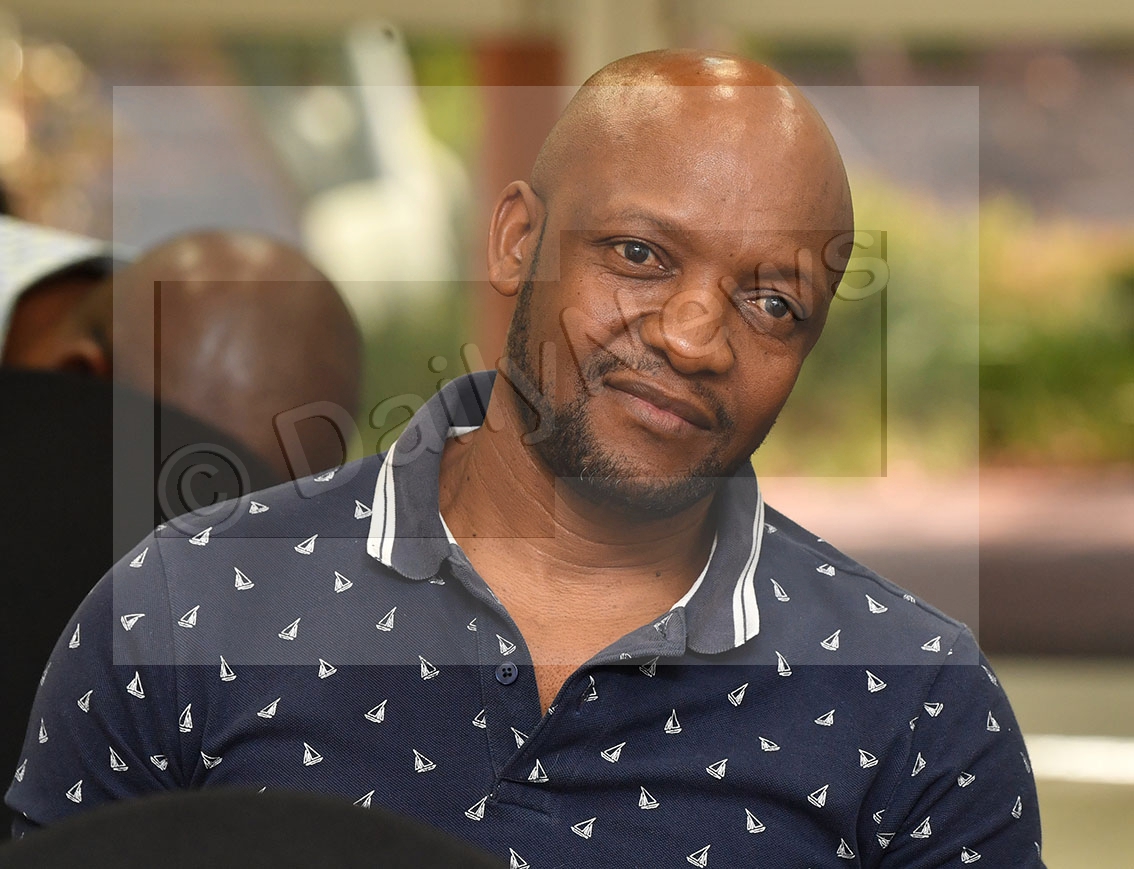Express Tennis Academy sanctuary of hope
10 Nov 2024
In the heart of Francistown, just a stone throw away from the bustling marketplace and amidst the energetic chatter of locals, lies a humble oasis of purpose and determination, Express Tennis Academy.
Here, the scent of freshly painted tables mingles with the palpable sense of enthusiasm that fills the air. It is a perfect sunny afternoon, light filtering through large windows and casting playful shadows on the floor, where a dedicated group of players warms up with their paddles.
At the helm of this haven is Shathiso Makhumalo, a tennis coach whose passion for the sport radiates like the bright sun.
Hailing from the quiet village of Mulambakwena in the North East District, Makhumalo has transformed his vision into reality, nurturing not just athletes, but warriors for change through his love for table tennis.
With more than 20 years of coaching experience tucked under his belt, Makhumalo has woven a narrative of resilience and empowerment.
As he stands behind the table, he exudes an infectious energy, his eyes sparkling with joy and a hint of mischief as he encourages his students, who range from eager children to determined adults, including those with disabilities.
“Table tennis teaches discipline and develops strategic thinking,” he explains, his voice lilting with enthusiasm.
“But even more importantly, it offers a sense of community and belonging. It breaks barriers.”
As he speaks, the rhythmic sound of paddles striking the colourful balls fills the air, creating an orchestra of sharp clicks and joyful shouts.
Each player is engaged in their own world, yet, somehow, they are all connected through the invisible thread of the sport.
The former military officer guides them with a patient hand, each lesson infused with his profound understanding of the game and its life-changing potential.
He explained that the tennis academy was empowering children with life skills, adding that since its beginning, the project had worked closely with the school administration and the children’s caretakers.
“Our aim as we work with these children is to offer emotional and psychological benefits that include improving concentration and attention, improving mood and a sense of wellbeing, reducing stress and anxiety, as well as increasing self-esteem and confidence, amongst others.
Makhumalo explained that the academy was more than happy that the Botswana National Olympic Committee for Special Olympics had opened its doors for Express Tennis Academy to become its partners.
“We are happy that our vision for the athletes looks real and the motivation has picked to another level and we believe we can be able to bring up a good team to compete in the next Special Olympics.”
Maphumulo advocates for private sector involvement in grassroots sports coaching, proposing a shift in the management of sports programmes.
He suggested that coaching for primary up to senior secondary school students should be entrusted to private sector clubs, while government focused its resources on training and supporting national teams.
Maphumulo emphasised that private clubs often had expertise and resources to provide specialised training tailored to the unique needs of young athletes, particularly those with disabilities.
This change, he argues, will allow schools to concentrate on academic development while ensuring that students have access to high quality sports coaching.
“We believe the local clubs have the creativity and adaptability to train our future athletes effectively letting the private sector take charge of youth coaching, government can better allocate its funds to competitive national teams,” he added.
In September 2023, Makhumalo Tennis Academy took a bold initiative, and officially partnered with Mahudiri Primary School to offer professional tennis coaching tailored specifically for children with disabilities.
The programme not only aims to teach tennis skills, but also fosters confidence, teamwork, and athletic prowess among its young athletes, redefining what is possible for differently-abled children.
Makhumalo saw potential where others saw limitations. He recognised that tennis was more than just a game, acknowledging it as a powerful tool for social integration and personal development.
“The tennis court has become a space for laughter, camaraderie, and determination, where every child, regardless of their physical limitations, can thrive and shine. I believe that everyone deserves the opportunity to play, learn, and grow.
Seeing their faces light up when they hit that first ball is what drives me. It is pure joy and hope,” Maphumulo reflects, as he recalls the moment he first introduced the sport to the children.
He observed that through the structured training sessions every Wednesday, students have shown remarkable improvement in their individual capabilities.
He said the programme not only taught tennis techniques, but also instilled values that were essential for personal growth, attributes that would serve the students well in their journeys ahead.
He believes that nurturing these qualities is just as important as athletic development, creating well-rounded individuals ready to face challenges with confidence.
“This growth we are witnessing goes beyond tennis skills. The students are developing a stronger sense of self and accountability,” he explained.
Mahudiri school head, Esther Motsokono said the school’s inclusivity was more than a policy.
“It is a principle embedded in the very fabric of their community,” she said, adding that the coaching programme not only focused on physical training, but was also designed to be immensely adaptive.
“From children with mobility challenges to those with sensory sensitivities, the coaching sessions were customised to meet individual requirements, allowing every child to experience the thrill of the game,” said Motsokono.
She explained that the programme had drawn support from parents and teachers alike, who had witnessed first-hand the transformative effect that engagement in sports could have on the children’s self-esteem and social skills.
“These sessions have become a highlight of our week, providing valuable insights and fostering a sense of community among participants,” she added.
Motsokono further indicated that the programme had significantly impacted the participants, fostering confidence, boosting morale, and improving communication skills.
“The programme has provided a platform for these students to excel both on and off the court,” she said, adding that the initiative had led to remarkable changes in the students’ demeanour, with many displaying new found confidence and enthusiasm in their daily interactions.
She stated Express Tennis Academy had proven to be a window of hope for Mahudiri Primary School children with disabilities.
Motsokono indicated that through its inclusive programme and dedicated coach, the academy had not only provided the children with the opportunity to engage in physical activities, but had also fostered a sense of belonging and self-confidence.
She disclosed that the initiative served as a reminder of the transformative power of sports and community support in creating a brighter future for all.
Among those who have enrolled for the programme is Molebatsi Rammonadibe, an 18 year-old with passion for the game that matches Makhumalo’s.
Having faced adversities due to his disability, Molebatsi discovered encouragement and purpose on the academy’s tables, where he now stands confidently in the spotlight. Ends
Source : BOPA
Author : Thamani Shabani
Location : Francistown
Event : Interview
Date : 10 Nov 2024








